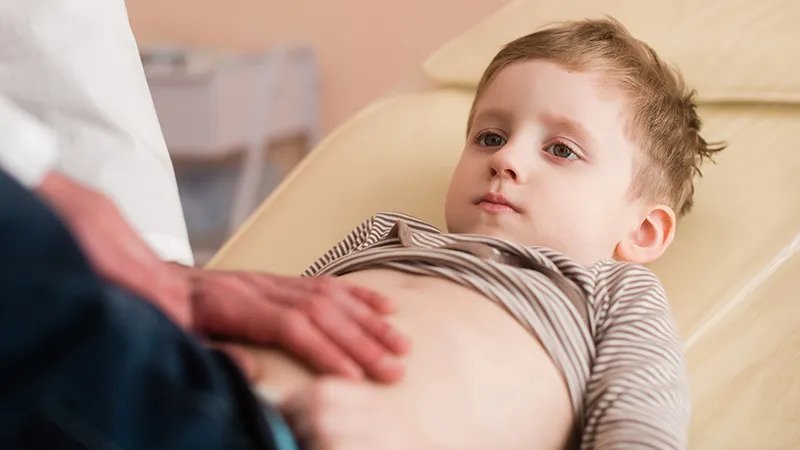Pediatric Abdominal & GI Surgeries
Pediatric Abdominal & GI Surgeries
In India a high percentage of children are born with congenital gastrointestinal anomalies that are surgically treatable by the pediatric surgeon.

What is Gastrointestinal Surgery?
Gastrointestinal (GI) surgery is a broad term used to describe a number of surgical procedures that take place in the abdomen. GI surgery is used to treat disorders with the gastrointestinal tract’s organs. This is the part of the body responsible for digesting food and extracting the nutrients needed for survival.
The GI tract contains the following organs:
- The mouth, the esophagus (food tube), and the stomach
- The pancreas, liver, gallbladder, and bile ducts (biliary system)
- Appendix, small intestine, and large intestine (colon).
- Anus and Rectum
Appendectomy (appendix removal) and gastrostomy tube (g-tube) implantation are two typical forms of GI surgeries for children. It is also useful in the treatment of nutritional and metabolic disorders in children.
What are Pediatric Gastrointestinal Conditions need GI surgeries?
- Appendicitis: The most common cause for emergency surgery in children of all ages is an infected appendix. Pediatric surgeons treat both acute and complicated cases.
Biliary anomalies: Biliary atresia is a sort of abnormality in which the bile ducts become inflamed and obstructed shortly after a newborn is born. This blockage causes digestive fluid to damage the liver. - Intestinal or small bowel atresia: Small intestine, which links the stomach to the large intestine, is obstructed by this birth abnormality. The initial segment of the small intestine (the duodenum) does not grow normally in duodenal atresia.
- Gallstones: Gallstones are hardened deposits of digestive fluid that can form in your child’s gallbladder. They may be removed by pediatric surgeons to reduce pain and other symptoms.
- Gastroesophageal reflux: When stomach acid flows in reverse, it can irritate the tube (oesophagus) connecting the mouth and stomach. Gastroesophageal reflux is normally temporary, but if it persists, it is referred to as gastroesophageal reflux disease (GERD).
- Intussusception: This form of intestinal blockage occurs when one segment of the intestine slips into another segment.
- Pyloric stenosis – Babies who have a thickened pylorus (valve between the stomach and small intestine) can have trouble digesting food. This may result in them vomiting, being dehydrated, losing weight, and feeling always hungry.
- Ulcerative colitis is an inflammatory bowel disease that affects the large intestine, or colon, of children, causing irritation and swelling. Experienced surgeons can safely remove the entire colon or only the affected segment.
- Crohn’s disease: This is a chronic inflammatory bowel illness that damages the digestive system lining. While surgery cannot cure Crohn’s disease, it may relieve inflammation and symptoms by removing diseased sections of the gut.
- Undeveloped anus: Babies with an underdeveloped anus are unable to pass feces properly. pediatric surgeons repair tissue so the rectum (at the end of the large intestine) and anus function together.
What is the GI surgery procedure?
GI surgery can be done as open surgery or as laparoscopic surgery.
- Open surgery is when the surgeon makes a large incision (cut) in the abdomen to reach the area to be treated. This sort of surgery requires a hospital stay and might take several weeks to fully recover.
- Laparoscopic surgery is performed by inserting a thin, narrow tube holding a small camera, light (scope), and specialized equipment via a small incision in the abdomen. The scope transmits images on a screen, allowing the surgeon to view the area to be treated. In most circumstances, this kind of surgery may be performed as an outpatient procedure (no hospital stay necessary), and recovery time is usually shorter.
Dr. Adwait Prakash is an expert pediatric gastrointestinal and laparoscopic surgeon practicing in Indore.
To book your appointment Call: 8889588832
